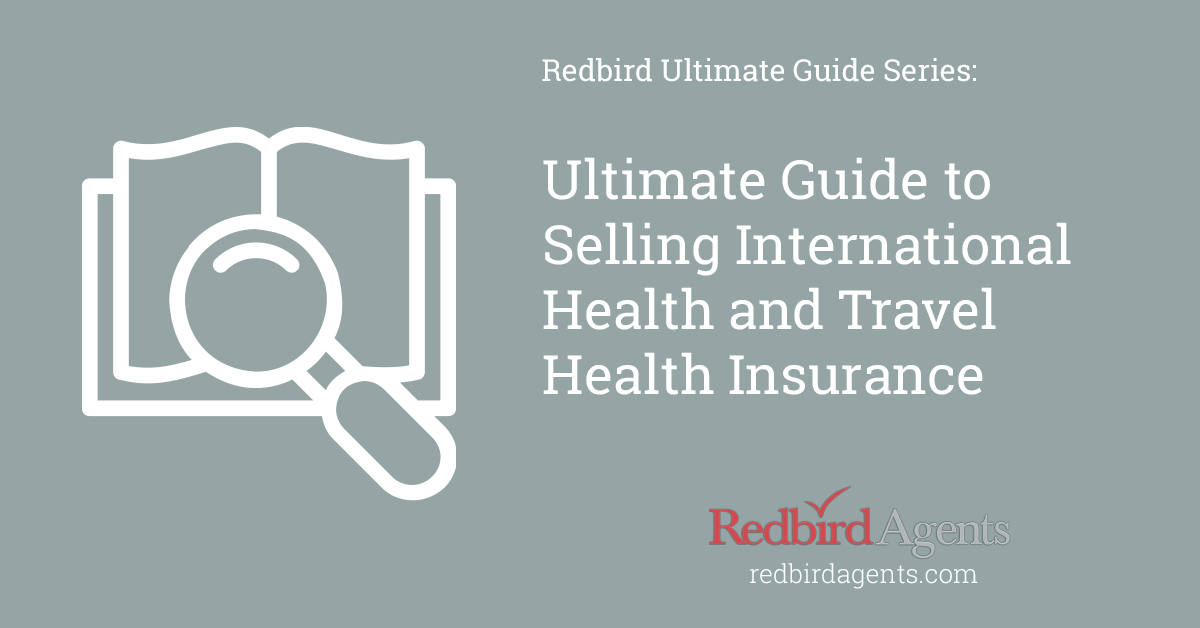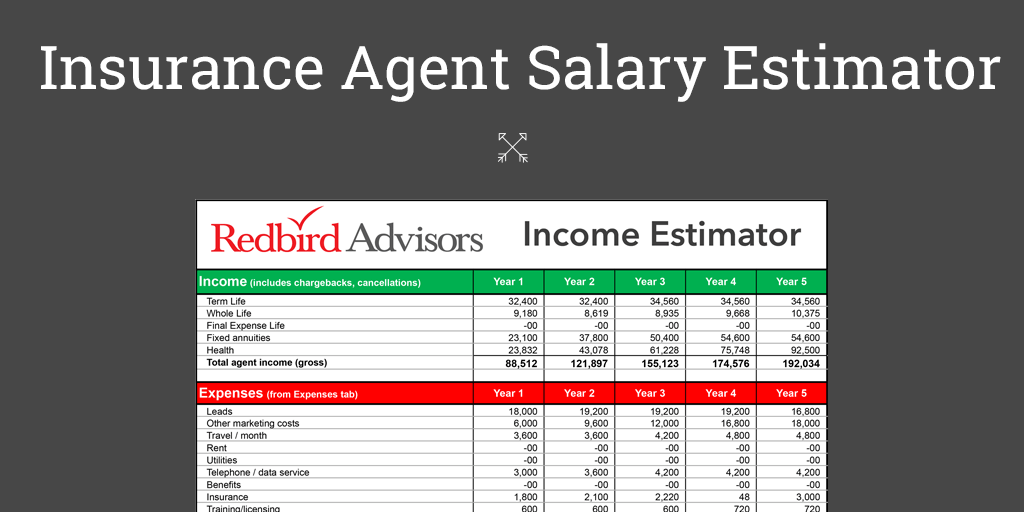
Need an international health insurance plan?
Selling international health insurance is not something every insurance agent can raise their hand and volunteer as an expert. It’s dynamic and takes some studying to get comfortable. Medical care is not the same in every country and you shouldn’t expect insurance to be either.
With that said, it’s one of the great insurance sales jobs.
Below are common questions and/or issues agents should know before getting started.
- What is international health insurance?
- What is travel health insurance?
- How to sell international health insurance
- What’s the difference between international medical travel insurance and international health insurance?
- How do expatriates get health insurance?
- International health insurance leads
- International health insurance commissions
- What are the licensing requirements to sell international health insurance?
- Can people with ITIN numbers get health insurance in the United States?
By the end of this guide you’ll have a better understanding of your opportunity to start selling international health insurance and having deeper conversations with those traveling abroad and going through the repatriation process in their home country.
What is International Health Insurance?
Individuals
International health insurance works just like a regular health policy, but better.
WORLDWIDE coverage is the major difference offered by the insurer. This is the largest contributor to peace of mind with these types of plans. Global healthcare providers recognize these plans, so it’s not something your clients will find uncommon.
This means that if you want to get treated for medical care in a country different than your own, your medical expenses will be covered insurer offering your international plan.
These health benefits are also portable, which allows you to relocate to another country without resetting deductibles or having to change copays. Many times, your clients can even roll over their deductible if they use their benefits within the last three months of the effective policy period.
What this means: Every dollar they spend towards their deductible in the last three months of their policy year will roll over as a credit toward their deductible the following year. This is a great benefit to help customers limit their out-of-pocket exposures.
Groups
If you are an insurance agent that works with universities, embassies, professional sports teams, multinational companies and multilateral organizations, international health insurance can be customized to fit your client’s needs. Groups have full control of their plan design, such as adjusting the types of benefits, waiting periods, deductibles, etc. There is a lot of flexibility, which makes the selling process very simple.
Selling international health insurance to small or large groups is a great business and provides a lot of flexibility.
The following information is needed to quote international group health insurance:
- Employee or group census
- Claims history
- Country of origin of policy holders
Most international health insurance plans are one-year plans, however, if your client needs a shorter time frame, you can custom design the duration. Shorter term plans are often referred to as “travel health insurance,” which we cover in the next section.
If you have clients that have short-term travel plans, then you should be speaking to them about travel health insurance.
Ready to Start Cross Selling International Health and Travel Health Insurance?
What is Travel Medical Insurance?
Travel medical insurance and travel health insurance often get confused.
Travel medical insurance
This is an insurance plan designed to offer clients medical insurance during the time they are traveling outside of their resident country; typically for trips of short duration. Make sure you study benefit summaries to understand additional benefits are available to your travel health insurance clients.
Travel health insurance is designed for individuals, families and groups living or traveling outside of their resident country for two days up to three years. Below are some of the common examples of markets that need international travel health insurance plans:
- International Studies: Most student visas, such as the J1 visa for international students coming to United States, require a certain level of travel health insurance.
- Foreign Travel: Some countries require visitors to have travel health insurance upon entry. The United States, Cuba, Russia and Schengen countries, are some commonly visited countries that require travel health insurance.
- Working Holiday Schemes: These types of programs or agreements allow people to temporarily work in and/or explore other countries. (Australia and New Zealand are another example of countries that require coverage prior to visiting)
- Mission Trips: While traveling to a less developed nation, it’s wise to consider travel health insurance. These types of policies are especially beneficial for those whose activities offer medical and political evacuation.
- Cruises: Before your clients set sale, you should help them research the cruise company’s terms and conditions to ensure they are covered for emergencies that may occur on board.
Travel insurance
This protects individuals from unforeseen accidents, tragedies and foreign illnesses related to their upcoming trips. Common examples include passport protection, translation services, lost luggage and identity theft.
Traditional travel insurance is often sold by travel agents and many consumers believe that it also includes health protection, which is often not the case. This is another reason why it’s so important to educate your clients on their coverage.
Lastly, many people assume they have travel insurance automatically built into their local bank or credit cards. This is one of the biggest misconceptions that travel agents and health insurance agents need to educate their clients on prior to their upcoming travels.
Is International Health and Travel Insurance included in most Credit Cards?
NO!
Credit card or domestic insurance may cover foreign travel in some instances, but few plans are as comprehensive as a stand-alone travel health insurance policy.
Most credit card companies will only provide coverage if the entire trip was booked using the credit card, which is why reading fine print is extremely important.
You should always help your clients understand what they have and highlight the gaps in coverage that would be filled by having a stand-alone foreign travel health insurance policy.
What are the Best International Health Insurance Companies for Expats?
There are many excellent companies you can work with to offer the right plan to an expat. Below are our favorites:
-
- IMG Global
- Vumi
- Bupa
- Cigna
- Allianz
- Aetna
- GeoBlue
- Best Doctors
Selling health insurance for people with ITIN numbers
International Tax Identification Number (ITIN) numbers are issued to foreign nationals, non-resident aliens or individuals who are not yet eligible for a social security number but still required to file federal taxes.
Examples of these folks are non-resident aliens that work in border states but are not citizens of the United States. They might travel back to Mexico often and need health insurance that works on both sides of the border. For example, your clients travel back to Mexico for holidays, vacations, or even family events. They shouldn’t need to travel uninsured.
If you are an agency that works with clients that do not have social security numbers or aren’t residents of the United States, you should be offering them international health insurance plans.
The only thing you need to remember is that you can only sell international health insurance to non-US citizens. Those that live and work in the United States without being a citizen are eligible to buy international health insurance from you.
Licensing Requirements to Sell International Health Insurance
International Health Insurance Agents
In many cases, international insurance agents do not have to be licensed to sell international health insurance. If you are an international health insurance agent, then I would advise getting aligned with an international health insurance agency.
U.S. Health Insurance Agents
If you live in the U.S. you must have your resident state’s health insurance license.
It’s also important to remember that if you’re selling international health insurance to anyone outside of your resident state, you must have a non-resident producer license.
This also is true for agents looking to build a sales team. If you plan on receiving overrides for your international travel insurance agents, you must hold an active license in every state they are selling international health plans. If you aren’t licensed in every state in which your producers are, you will not receive commissions on their new sales. An example of this scenario would be if you or one of your agents are selling to someone who is moving out of the U.S. at retirement and will no longer be a resident of the United States.
You always want to make sure you know the companies and their various requirements.
**Note that you cannot sell international health insurance plans to U.S. residents unless they are moving outside of the U.S. U.S. resident are typically only eligible for travel health insurance plans.
Can I Sell Health Insurance for Expatriates?
Yes, expatriates (also known as expats) are one of the biggest users of international health insurance.
What is an expatriate?
Expatriate, or expat, is a citizen of one country that is currently living in another. Expatriates are typically temporary visitors which creates the need to offer them international health insurance.
Not all countries require expats to have health insurance prior to being issued a visa.
Countries that require current international health insurance prior to issuing a visa are referred to as Schengen countries.
What are Schengen countries?
Schengen countries are countries that have agreed to allow visitors to travel the territory as if it were a single county.
Each of these 26 countries does, however, require health insurance prior to issuing a Schengen visa.
Below are the 26 countries that make up the Schengen Area:
| Austria | Finland | Iceland | Luxembourg | Portugal | Switzerland |
| Belgium | France | Italy | Malta | Slovakia | |
| Czech Rep | Germany | Latvia | Netherlands | Slovenia | |
| Denmark | Greece | Lithuania | Norway | Spain | |
| Estonia | Hungary | Lichtenstein | Poland | Sweden |
If you know anyone who frequently travels to any of these 26 countries, they are a perfect candidate for an international health insurance plan.
What Countries are Restricted for International Travel and Health Insurance Sales?
Like any insurance product, geographical restrictions do exist. Below are some of the common countries / locations that have likely have restrictions with international health insurance sales:
- Islamic Republic of Iran
- Syria
- Arab Republic
- US Virgin Islands
- Gambia
- Ghana
- Nigeria
- Sierra Leone
Make sure to speak with your company rep prior to selling or soliciting insurance to anyone in these countries.
How to Sell International Health and Travel Insurance
There are some simple steps you can take to get started selling international health insurance and travel insurance:
- Decide if you want to work as a captive agent or independent agent
- Get contracted to sell international health and travel insurance
- Complete international health insurance training:
- Discovering your target market
- Best international health insurance and travel health insurance leads
- Fact finding
- Building the need
- Matching your client with the right international health plan
- Close the sale
- Get paid
Learning how to sell these plans isn’t necessarily difficult, you just need to work with an experienced international health insurance agency.
What are the common insurance plans that impact international health insurance sales?
- United States: Affordable Care Act
- Europe: Socialized Healthcare
- Latin America: Socialized Healthcare
- United Kingdom: National Health Service
- European Union: European Health Insurance Card
- Africa and Middle East: Socialized health care with unreliable care
Any clients you come across that have any types of plans listed above should research their plans to make sure they understand the common foreign travel exclusions.
Traditional health insurance doesn’t always cover foreign travel
That means your clients will be responsible for their Medical bills if they get sick or injured during foreign travel.
Also, medical providers in foreign countries may require them to pay for services before getting treatment, which is something all foreign travelers should know prior to their trip.
Unpredictable illnesses and accidents happen all the time and the resulting medical bills can be devastating. It’s your job to make sure your clients are informed.
As an insurance agent, you need to set aside time to understand the coverage you are offering abroad and be certain that clients are appropriately covered during their travels.
Selling travel health insurance1 is quite simple, you can offer coverage whether you live in the United States or anywhere else in the world.
This is truly a global health insurance sales opportunity.
What benefits are included in International Health Insurance policies?
- Inpatient and outpatient surgery
- Hospitalization due to illness or accident
- Return of mortal remains (transferring the body back home)
- Transplants
- Child wellness
- Mental health services and other well-being benefits
- Medical evacuation
- Maternity for pre- and post-natal care subject to a waiting period
- Some prescription drugs
Additional benefits included in travel health insurance plans
- Adult wellness
- Recreational SCUBA
- Political evacuation
- High school sports injuries
- Embassy and consulate services
- Bag tracking
- Lost passport assistance
- Emergency travel arrangements
International health Insurance Commissions
Commissions are quite good for this market and, like most insurance products, health insurance agents can improve their commission level as their book of business grows based on carrier levels and milestones.
International health insurance commissions start at 10% and can go as high as 30% depending on the carrier and the product.
Average premiums are $400 average for the travel market and $6,000 for the health coverage per family per year.
If you want to run some examples to see how much money you can make selling international health products, follow the example below.
Income Potential = # of Sales x Average Premium x Commission %
Conclusion
Selling international health insurance and travel health insurance is a nice way to round up a personal or a group account.
With the right education from you, your clients will be able to shop online for international health and travel insurance and choose the plan that best fits their needs.
International health agents are equipped with customized websites from the carriers which make the sales and enrollment process extremely simple.
Remember to get aligned with an organization that can help you navigate the complexities of international health and travel health insurance.
If you have questions or would like to talk to someone about getting started selling international health insurance or travel health insurance, please contact us today.


